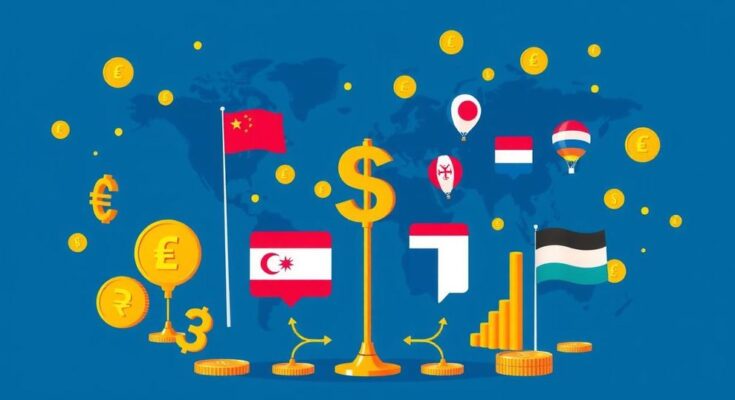Kenya has sought a new funding program from the IMF after discontinuing the final review of an existing agreement to access $800 million. The current program concludes on April 1, and Kenya faces a fiscal gap. The nation struggled to meet fiscal benchmarks and plans to adjust its borrowing strategy moving forward.
The Republic of Kenya has formally requested a new financial program from the International Monetary Fund (IMF) following the decision not to proceed with the final review of an existing agreement that would have released $800 million. The present $3.6 billion four-year program, initiated in response to the economic impact of the Covid-19 pandemic, is set to expire on April 1, creating a potential budget-financing shortfall for the nation.
The IMF’s statement highlighted that after discussions, both the Kenyan authorities and IMF staff have agreed to forgo the ninth review under the current extended fund facility and credit facility programs. The IMF has acknowledged receipt of a formal request from Kenya for a new program and intends to continue discussions.
Kenya has struggled to meet significant benchmarks under the current agreement, notably in reducing its fiscal deficit and enhancing revenue. Attempts to implement new taxes or expand the tax base have previously incited violent protests, resulting in numerous fatalities.
In a financial maneuver last month, Kenya repurchased some of its eurobonds while issuing longer-term securities. The government plans to use approximately $950 million of this balance to repay costly loans owed to the Trade and Development Bank, alongside anticipating the complete disbursement of a $1.5 billion loan from the United Arab Emirates (UAE), which was initially scheduled in installments.
Concerns have been raised by Treasury Secretary John Mbadi regarding the potential foreign-exchange risks associated with the UAE loan, which exceeds Kenya’s current fiscal year’s borrowing limits. As Kenya approaches the next budget year, set to commence in July, it is planning to reduce foreign loans to 18% of the overall financing, projecting a fiscal gap of 4.9% of GDP this year and 4.3% the following year.
In summary, Kenya’s request for a new IMF funding program follows challenges in meeting key fiscal targets. The suspension of the final review of the existing financial agreement raises concerns of a budgetary shortfall. As Kenya navigates these financial hurdles, it aims to adjust its borrowing strategy and improve fiscal management in the upcoming fiscal years.
Original Source: www.livemint.com




